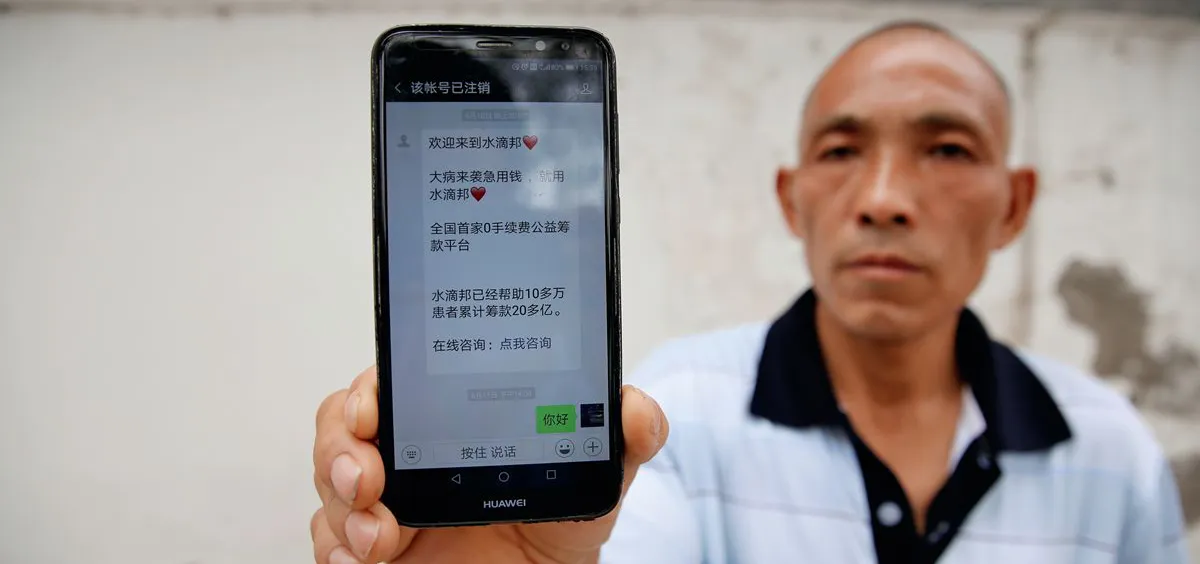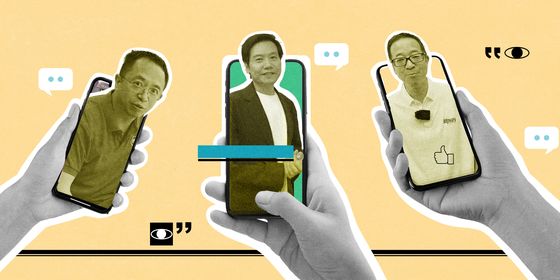Crowdfunding has become a helpful but controversial charity channel
After killing four people in a car accident on July 8 in Deyang, Sichuan province, motorist Yang Long faced not only lengthy jailtime, but also a hefty compensation claim. His solution? Crowdfunding.
Yang raised 23,935 RMB from 1,215 contributors on the crowdfunding platform Qingsongchou (“easy funds”) before online outrage ensued. Qingsongchou removed Yang’s page and refunded the contributors, but caught serious heat for failing to properly review what critics called an “absurd initiative.”
The incident has shed light on a growing practice among those suddenly saddled with enormous bills in a country with few social safety nets. Beijing-based Qingsongchou is one of the 22 online fundraising platforms approved by the Ministry of Civil Affairs. By 2018, 1.6 million families had used the platform to raise more than 20 billion RMB.
Yu Liang, the platform’s founder and vice-president, told the 21st Century Business Herald that the success of the company’s “star product,” DabingJiuzhu (“critical illness assistance”), was due to their use of social media platforms like WeChat. Speaking to People’s Daily, Yu attributed the app’s popularity to the urgent need for financial support within an expensive healthcare system.
Research published by the National Cancer Center in 2016 found that, 77.6 percent of the families of cancer patients between 2012 and 2014 suffered “unmanageable financial burden.” Some patients have even refused treatment due to the high costs, preferring death over bankruptcy.
Online crowdfunding has become a critical lifeline for many in the smartphone era. However, some fundraisers, such as the errant driver Yang, have been accused of taking advantage of the system and manipulating the public’s goodwill. Stories of exaggerated illnesses, frivolous expenses, and phony sob stories have also stretched donors’ patience thin.
In the 2016 case of Luo Yixiao, a Shenzhen couple raised over 2 million RMB for their 6-year-old daughter’s leukemia treatment, before it was revealed they had three apartments and medical insurance. In a similar case that year, another crowdfunding couple, who owned a Mercedes and a diamond ring, defended their actions as that “a sick child shouldn’t mean [they] had to wear 10 RMB clothing.” Such incidents have dented public confidence in online philanthropy, as donors felt exploited into maintaining someone else’s high quality of life.
Lawyer Yue Shenshan told China National Radio that China’s 2016 Charity Law makes no provisions for private online initiatives. “Fundraising platforms are not required to, and may not be able to verify [proof].” According to Yu, Qingsongchou is still improving its identity verification procedures, but hospitals and civil affairs bureaus are reluctant to cooperate. As an editorial in Beijing Evening News commented, the common belief that only people in dire straits beg from strangers may not apply to the digital era. But if public sympathy is exhausted, those who truly need help will be the biggest losers.
Phony Philanthropy is a story from our issue, “The Masculinity Issue.” To read the entire issue, become a subscriber and receive the full magazine.












